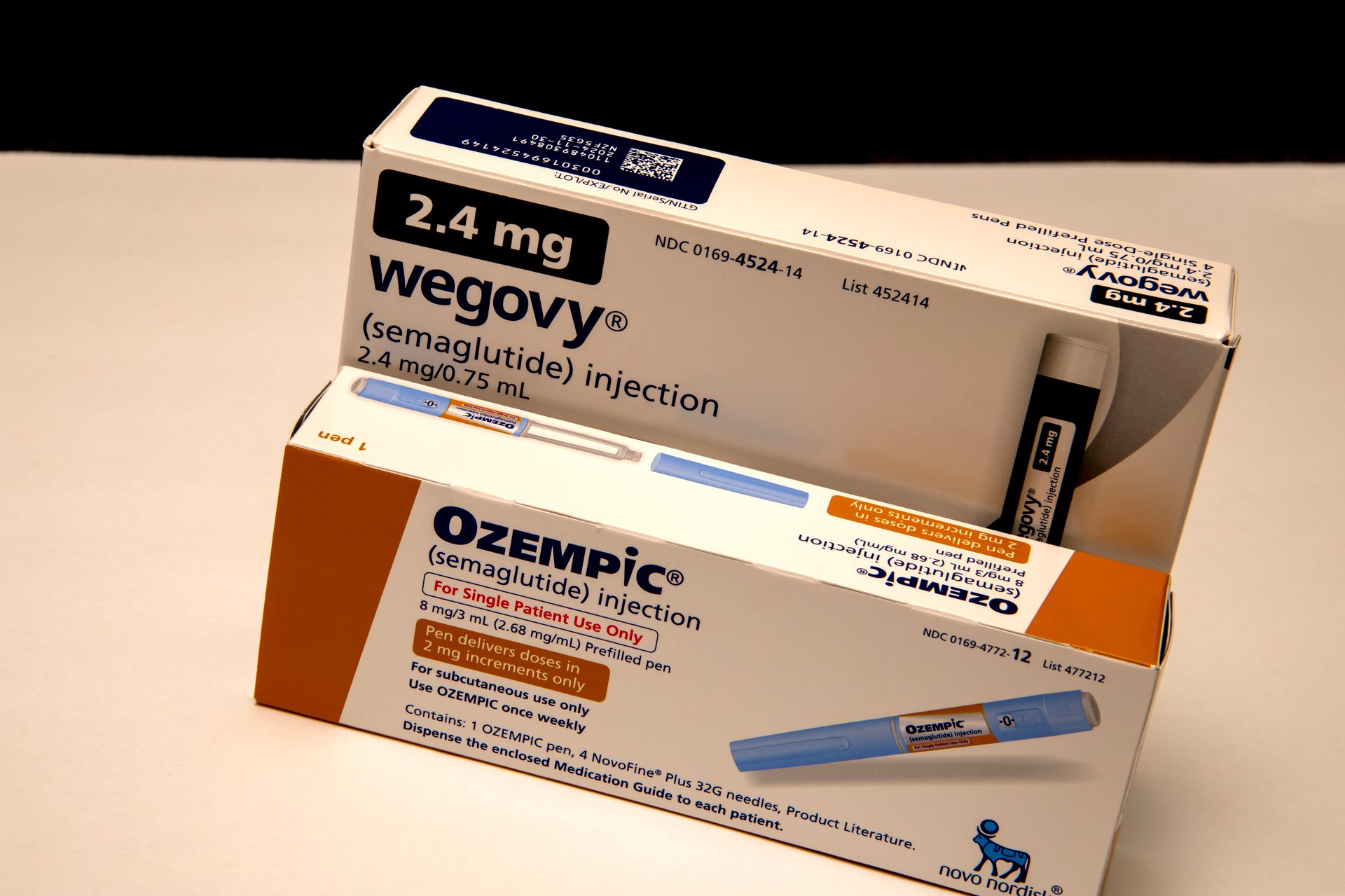Novo Nordisk's latest weight loss drug deal is with an AI-powered research firm
As Novo Nordisk faces outside scrutiny, it's making an $812 million bet on the next weight loss frontier

(Photo by: Michael Siluk/UCG/Universal Images Group via Getty Images)
Novo Nordisk is diving deeper into the AI drug discovery race, making a big bet on the future of weight loss drugs — just as investors might be beginning to question who (and what) is steering the ship. On Wednesday, the Danish pharmaceutical giant announced a deal worth up to $812 million with Deep Apple Therapeutics, a U.S.-based biotech startup that uses artificial intelligence to discover drugs.
Suggested Reading
The goal? To create an oral weight loss and heart health treatment that works differently from today’s blockbuster injections — such as Novo Nordisk’s Ozempic and Wegovy. Instead of targeting the popular GLP-1 pathway — the same mechanism behind Ozempic — Deep Apple’s approach aims at a different biological target, one that might avoid some of the side effects and supply issues that have dogged the current class of drugs.
Related Content
On its face, the Deep Apple deal is a shot across the bow at Novo Nordisk’s rivals (such as Eli Lilly), which have chipped away at Novo Nordisk’s dominance in the $150 billion weight loss market. But timing is everything — the company is currently without a permanent CEO following the surprise departure of longtime CEO Lars Fruergaard Jørgensen in May.
And Novo Nordisk is dealing with fresh scrutiny from activist hedge fund Parvus Asset Management, which has quietly built a stake in the company and reportedly hopes to influence the CEO succession — a move that briefly lifted Novo Nordisk’s stock on speculation about boardroom shake‑ups.
All of that makes the Deep Apple partnership more than just another research deal or pipeline play. It’s a message to the market: Novo Nordisk wants to show it’s still at the forefront of the next wave of obesity treatments — even as the competition heats up and questions swirl around its direction and footing.
For Novo Nordisk, the deal is largely both a scientific and a strategic bet. Deep Apple’s tech combines AI, structural biology, and massive virtual libraries of potential drug compounds to search for new ways to treat disease — especially through so-called GPCR targets that are tricky but promising. If Deep Apple’s method works, it could help Novo Nordisk move beyond GLP-1 drugs and stay ahead of rivals.
Novo Nordisk has been on a partnership spree lately — inking deals with other biotech firms, most recently Septerna but also Omega Therapeutics, and Evotec. But the Deep Apple deal stands out for its size and its future-focused, AI-first approach. For Novo Nordisk investors, the deal with Deep Apple offers: a bet on scientific boldness and a statement that the company refuses to rest on the laurels of its GLP‑1 blockbusters.
The company’s stock is down over 29% in the last six months but is up 17% over the last month and 8% over the past five days.
Whether this deal works or not all comes down to execution. Developing pill-based treatments for obesity and heart-related issues is still risky and tricky. Once Deep Apple finishes the early research, Novo Nordisk will take over — and how fast they move, and whether or not the drugs actually work in early testing, will matter a lot. If all goes well, Novo could avoid problems such as fatigue with current treatments, supply issues, or cheaper copycat drugs.
If it doesn’t, the company risks deepening the doubts swirling around its leadership and long‑term strategy.
In many ways, the Deep Apple tie‑up is a test of faith — in the science and in whoever ends up steering the ship. As Novo moves to appoint a CEO (with some analysts speculating that a U.S. executive could help in the world’s largest weight‑loss market), and as Parvus observes from the wings, the stakes couldn’t be higher.